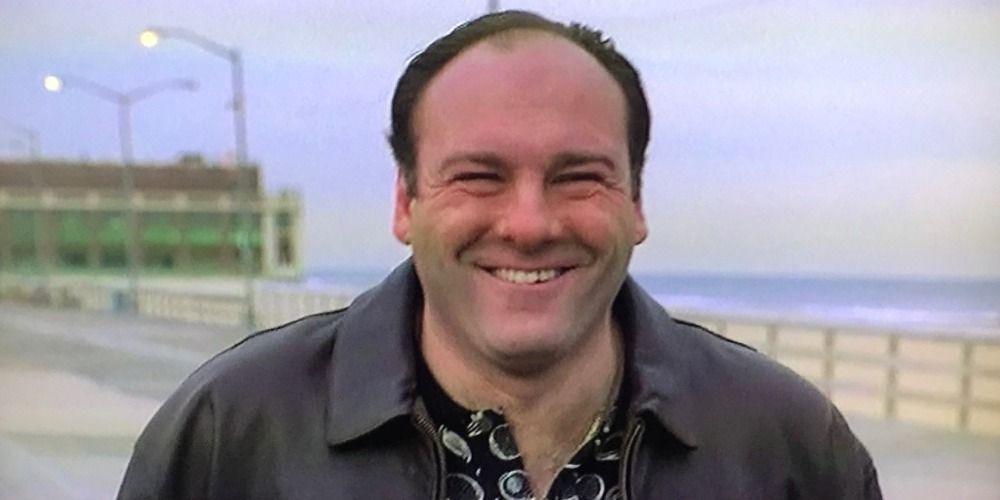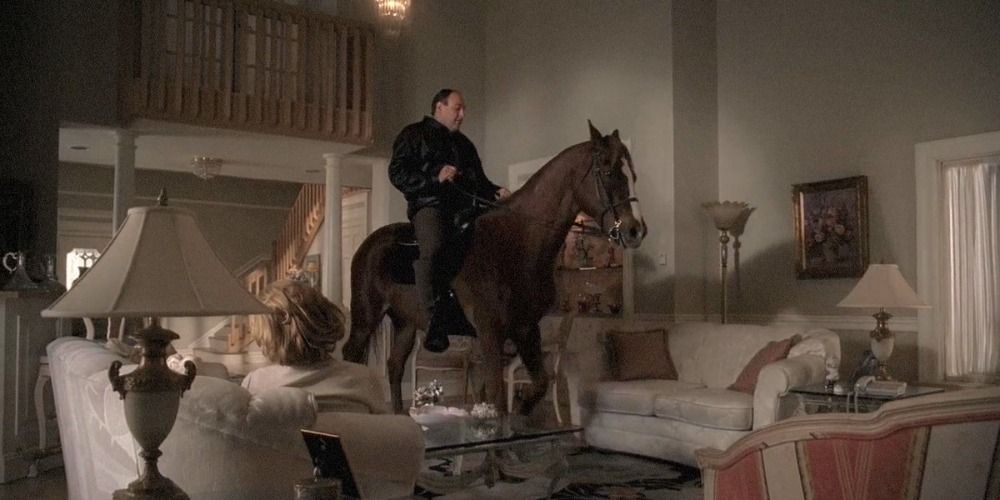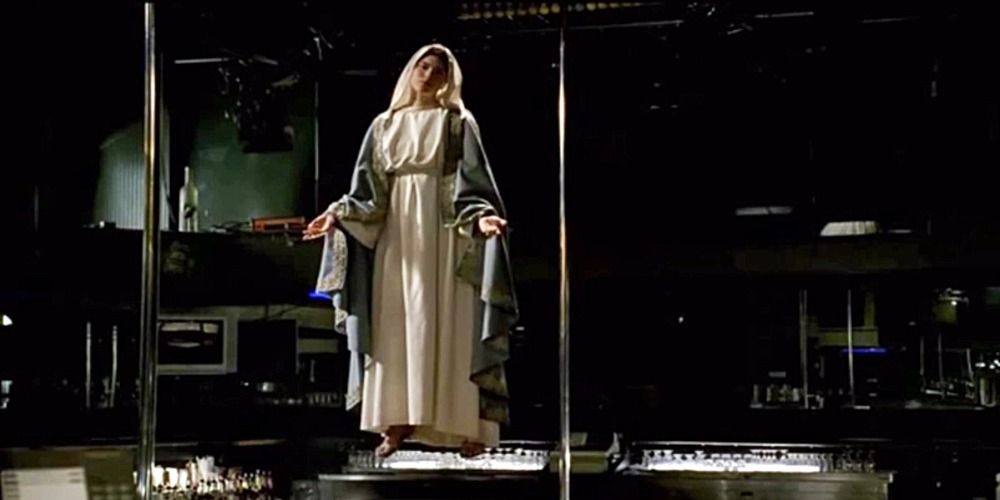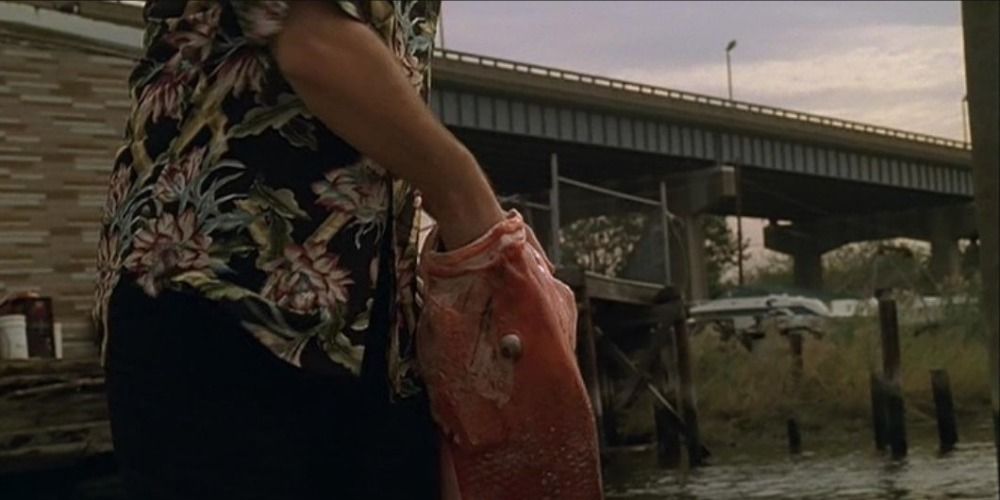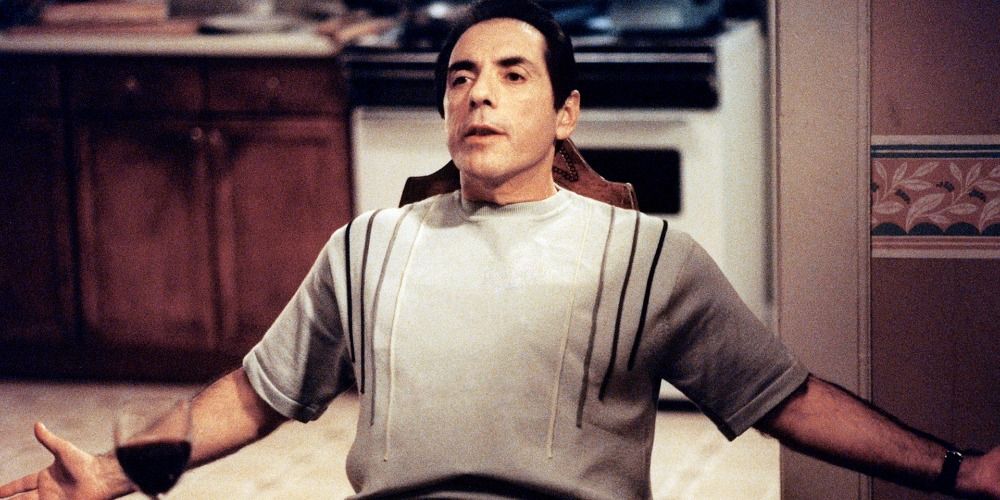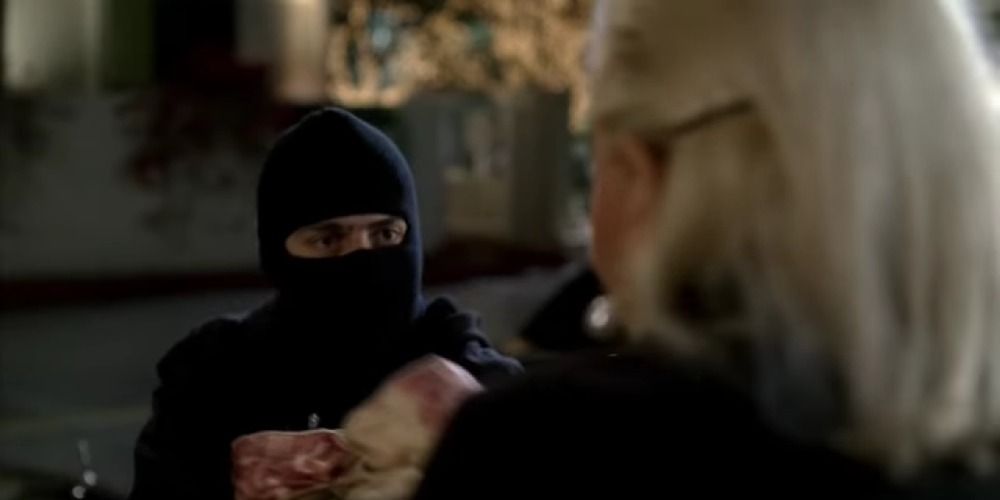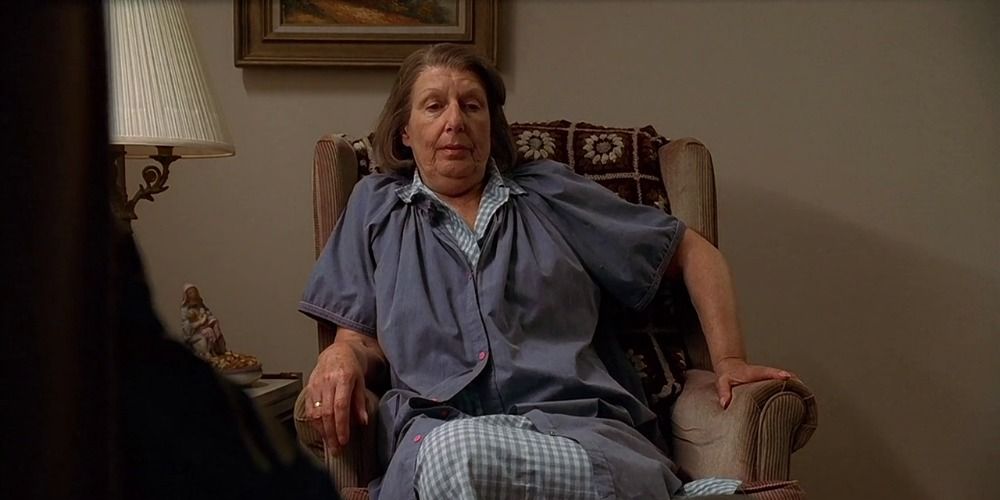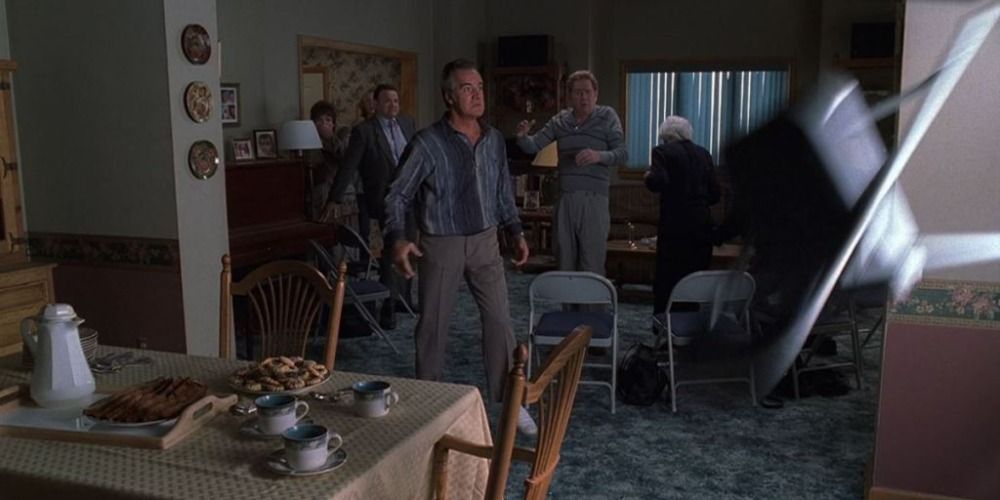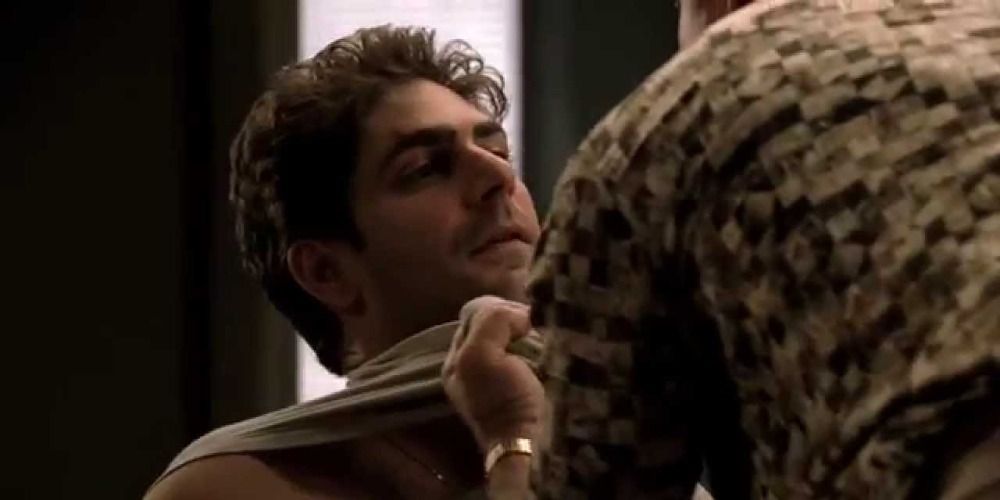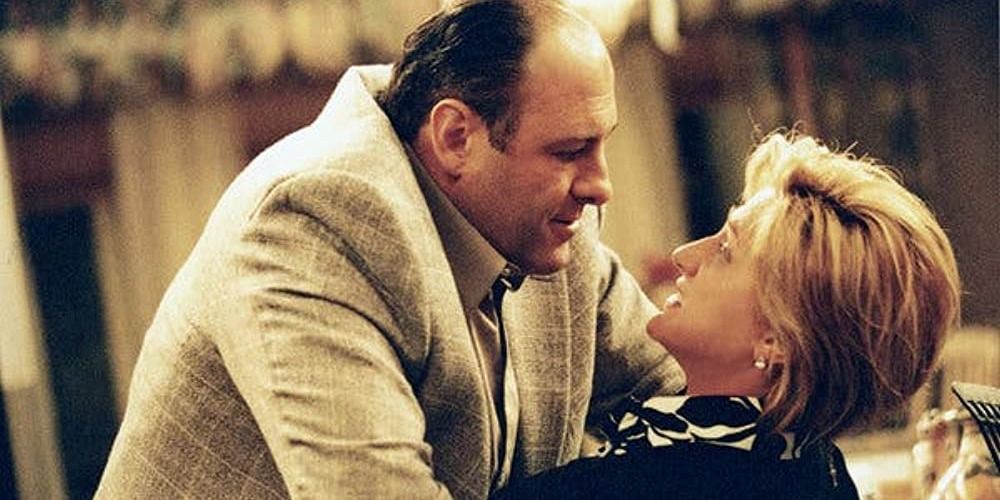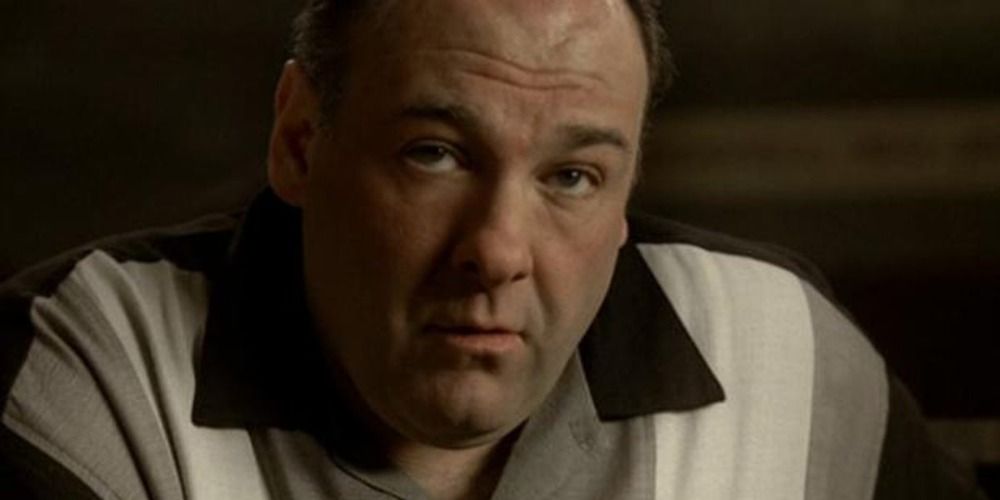The Sopranos is one of the most beloved and acclaimed television series of all time. It painted an intimate and grounded portrait of the gangster Tony Soprano (James Gandolfini) and the struggles between his two families: his blood family and his crime family. Airing in 1999, the show spawned six incredible seasons that fused psychological drama with Mafia movies in a perfect marriage.
As realistic as the show was, real life is kind of extraordinary. While not containing anything that was too over the top or immersion-breaking, The Sopranos was home to many wild and unpredictable moments, and it's hard to believe that it aired on prime-time television. Whether played for comedy, drama, horror, or a mix of the three, these moments kept audiences on their toes every Sunday night at 9:00.
This article contains spoilers for The Sopranos.
The Entirety of "The Test Dream"
One thing that separates The Sopranos from a lot of crime stories is its emphasis on mental health, and Tony's dreams give us front-row seats to the inner turmoil of his psyche.
"The Test Dream" starts normally. Tony checks in at Manhattan's Plaza Hotel to get out of his mother's decrepit house, and what follows next is a labyrinthine, 20-minute dream sequence. In it, Tony shares a bed with the aged Carmine Lupretazzi Sr. (Tony Lip), drives around with dead people, is chased around Jersey like he's Frankenstein's monster, and tries to convince his wife, Carmela (Edie Falco), to let him keep his horse in the house. It's a wild ride that's disturbing as it is funny, and it's hard to think of another show that could pull it off.
The Virgin Mary
Paulie "Walnuts" Gualtieri (Tony Sirico) is not a good man. He frequently backstabs Tony, is prone to childish tantrums, and he'll kill anyone for a buck. Paulie is despicable, but his worst moment is when he throws his mother to the wolves after he finds out he's her sister's son. His mother is his aunt, and his aunt is his mother.
Paulie spends the next few episodes badmouthing the woman who raised him, up until he receives a startling vision of the Virgin Mary at the Bada Bing. Mary is on screen for just a second, floating mid-air and accompanied by a heavy guitar riff. It's a jumpscare out of left field that's genuinely unsettling, and it's enough to scare Paulie into forgiving his adoptive mother.
Tony Hides a Gun in a Fish
If you were to watch Season 1 of the series and then jump to Season 6, it would be like you're watching two different shows. Season 6, while it does have its levity, is like watching a tragedy of Wagnerian proportions. Season 1, in comparison, is a laugh-a-minute riot but noticeably more unpolished. This probably explains the most bizarre whacking in the whole series, and that's the one where Tony hides a gun in a fish.
In the Season 1 finale, "I Dream of Jeannie Cusamano," Tony launches a counter-attack on his Uncle Junior's (Dominic Chianese) crew after he makes an attempt on his life. Tony corners one of his soldiers, Chucky Signore (Sal Ruffino), on a boat, and after a little small talk about the fish he just caught, Tony suddenly pulls out a pistol from the fish's mouth and blows Chucky away. That's one way to conceal carry.
The Fall of Richie Aprile
Richie Aprile (David Proval) is the primary antagonist of Season 2, and he makes for an unforgettable one. He's devious as he is fearless, and one of the few people that are completely unafraid of Tony and what he's capable of.
His arc is mostly about him settling back into the family after a long stint in prison, not realizing that the game has completely changed. He brazenly pushes cocaine on garbage routes and tries to worm his way into Tony's life through his relationship with his sister, Janice (Aida Turturro). You would think that the season would end with some sort of climactic confrontation between Tony and Riche, maybe a one-on-one brawl to the death or an expertly planned assassination. Nope. Instead, Richie is unceremoniously shot twice in the chest by Janice after he hits her. As Carmela put it, "That was not a marriage made in heaven."
Chris Robs Lauren Bacall
"Luxury Lounge" is a criminally underrated Sopranos episode, and it's one of the best. It shines a spotlight on Tony's best friend Artie Bucco (John Ventimiglia) as he struggles to save his restaurant, but also has the funniest B-plot in the whole series. Tony's nephew Christopher (Michael Imperioli) and the air-headed "Little" Carmine Lupretazzi (Ray Abruzzo) try to cast actors for their movie, Cleaver.
What follows is the two awkwardly trying to pitch the movie to Sir Ben Kingsley (as himself). Chris' tough guy attitude does him no favors, and Carmine's tenuous grasp of the English language doesn't help either. Chris hounds Kinglsey the rest of the episode, and he accidentally lets slip that actors get a ton of free, expensive stuff at award shows. This results in Chris mugging the late, great Lauren Bacall (also as herself) outside one of these shows and decking her in the face. He clumsily makes off with the basket of goodies and kicks it up to an unimpressed Tony. Classy? No. Wild and darkly comic? Yes.
Livia Attempts Filicide
Season 1 of The Sopranos was lighter in tone compared to the rest of the series, but the conflict between Tony and his mother, Livia (Nancy Marchand), is probably the most disturbing and shocking plot thread in the whole series. It's hard to think of any prime-time television series that would feature a plot of a mother trying to kill her son.
Livia is not a pleasant woman. Most characters on the show refer to as a "void" or a "black hole." It's heavily implied that she has undiagnosed Borderline Personality Disorder: being a mob wife surrounded by lies, death, and infidelity did not help matters. The conflict kicks off after Tony has her put in one of the best "retirement communities" in the state as it becomes clear she can't live alone. As a reward for one of Tony's few acts of generosity, Livia sets out to have him killed by manipulating Uncle Junior to do the dirty work. This plotline defined the rest of the show, and fans are still wondering what the series would have been if Marchand hadn't passed after filming the second season.
Paulie and the Psychic
For a grounded crime drama, The Sopranos contains a lot of strange, borderline supernatural moments. Paulie's encounter with a psychic is just one of them, but it's probably the most unforgettable.
In "From Where to Eternity," Christopher is in the hospital after being almost killed by two of his dimwitted subordinates. Upon regaining consciousness, he informs Tony and Paulie that he was in Hell, and Hell is a loud Irish pub where their fellow mobsters are humiliated every night. Paulie is unsettled by this and Chris' other ramblings and seeks help from a psychic to ease his mind. However, the psychic does him no good and has an uncanny knowledge of Paulie's laundry list of murders. In a fit of rage, Paulie tries to throw a folding chair at these haunting specters, concluding one of the strangest and funniest moments on the show.
The Death of Cosette and Chris' Intervention
Chris' life is a black comedy filled with stupid blunders. "The Strong, Silent Type" features his dumbest and funniest, where he crushes Adriana's (Drea de Matteo) dog, Cosette, in a high stupor. She comes home to their apartment to find that Chris has passed out on the couch and is sitting on her now deceased dog: Chris weakly protests his innocence, claiming, "She must've crawled under there for warmth!"
That's just the beginning of the episode: Adriana, worn down by Chris' addiction and behavior, stages an intervention on his behalf. His closest friends come together and try to help him. His only problem is that all his friends are emotionally stunted mobsters. The intervention is less of a therapeutic moment of healing and more like a roast of Christopher. The intervention ends with Chris snapping at his "friends" and them beating him up in return. So much for honor among thieves.
Carmela Walks Out On Tony
Like a lot of shows, the season finales of The Sopranos usually mark some kind of dramatic change in the main character's life. The Season 4 finale, "Whitecaps," is at the head of the class on those terms and features Carmela finally separating from Tony.
As a mob wife, Carmela has to put up with a lot. Sure, there are perks like the lovely jewelry and the expensive house, but she also has to lie to her children, be subject to threats against her life as a risk of Tony's "job," and has to put up with his unfaithfulness. In "Whitecaps," that all comes to a head. She finds out about Tony's latest affair and goes nuclear. She throws Tony's clothes out the window, kicks him out of his own home, and wants to file for divorce. The episode is nothing but James Gandolfini and Edie Falco putting their sheer acting talent to work as two bitter people that have grown to resent each other, and it's shocking as it is real.
The Final Scene
Out of all the unexpected things The Sopranos has done, it would be a crime not to mention the very last scene of the finale, "Made in America." The episode has the grim pace of a funeral procession, taking place in the dead of winter and marked by even colder cinematography and direction. At this point in the series, most of Tony's allies are dead and buried, and he's pretty much on his own to end the mob war between Jersey and New York.
Against all odds, Tony manages to get the upper hand and emerges the victor, but the episode isn't over yet. After a last chat with a now dementia-afflicted Uncle Junior and a meeting with his lawyer about a rat in his crew, he goes out to have dinner with his family. While they're waiting on his daughter, Meadow (Jamie-Lynn Sigler), the restaurant's doorbell rings, Tony looks up, and... the episode cuts to black. This lack of closure is one of the most audacious things the series has ever done. Did Tony die? Is he in Hell, living out this family dinner for eternity right before he gets whacked? Or is this merely a dream of happier times? No one can say, and it makes for one of the greatest and unexpected moments on TV, ever.

